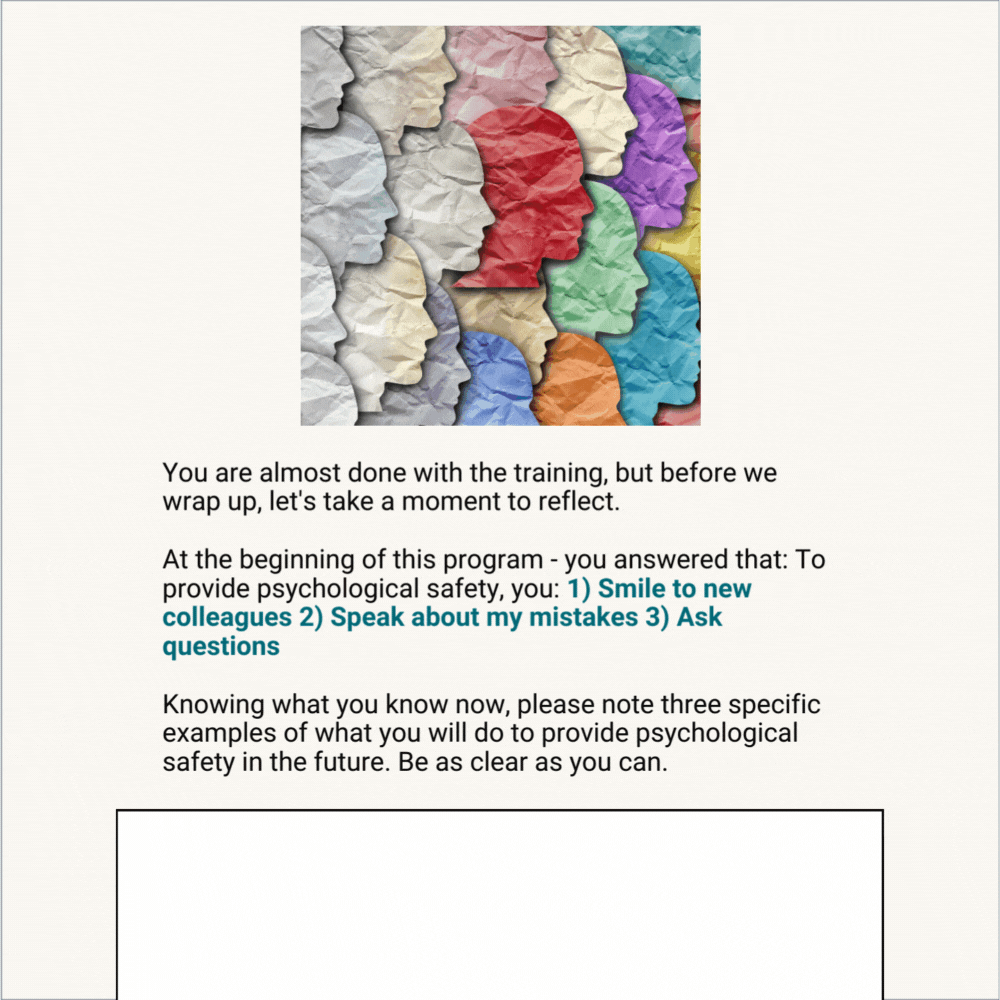Learn how to create psychological safety.
Training in Psychological safety.
Psychological safety is a crucial factor in healthy teams. It clears barriers to innovation and collaboration. This training will help you facilitate conversations that foster psychological safety, build trust among team members, role model behavior, and much more.
🤳🏼 Self-paced or 📝 Blended-learning
🇺🇸 English or 🇩🇰 Danish
















